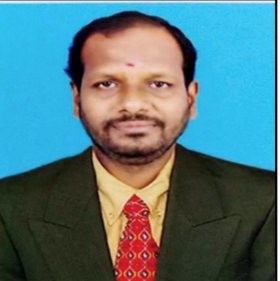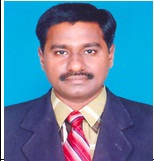Civil Engineering is the art of directing the great sources of power in nature for the use and convenience of mankind. It is the mother branch of engineering that deals with the design, construction and maintenance of the physical and naturally built environment. The department of civil engineering was started in the year 2011. The department boasts excellent infrastructure facilities and faculties rich in knowledge and experience. Since its inception, the Civil Engineering Department at AVC College of Engineering has grown into a dynamic center for learning and practical training.
The department offers well-furnished laboratories for all major civil disciplines including Concrete Technology, Soil Mechanics, Surveying, and Environmental Engineering. These labs are equipped with modern instruments, giving students real-time exposure to technical processes. Classrooms are smart-enabled, and the library provides access to a wide range of textbooks, journals, and digital resources. The faculty members are highly qualified, dedicated, and involved in both teaching and research, guiding students with updated knowledge and hands-on mentorship. Regular workshops, seminars, industrial visits, and technical symposiums are conducted to enhance students’ practical knowledge and industry readiness. The department maintains active ties with professional bodies such as IEI and ISTE, and encourages students to engage in memberships and competitions.
Placement support, career guidance, and soft skill training are regularly provided to help students secure jobs in civil engineering firms, government departments, and higher education institutions. The department also participates in community outreach and sustainability initiatives like rainwater harvesting, green buildings, and environmental awareness. With AICTE approval, NAAC accreditation, and continuous efforts toward academic excellence, the department aims to produce skilled, ethical, and socially responsible civil engineers who can contribute to infrastructure development and nation building.
VISION
To produce knowledgeable and professionally qualified Civil Engineers with the capability to offer global solutions to the increasing problems in the construction industry.
MISSION
●● To impart knowledge and training in Civil Engineering.
● To establish state-of-the-art infrastructure to enable learners to update their knowledge in current developments in Civil Engineering
● To bridge the gap between academy and industry through practical exposure and hands-on-training

Our department is dedicated to fostering a dynamic academic environment that encourages innovation, technical mastery, and research-based learning. With committed faculty, advanced laboratory facilities, and strong ties to industry, we ensure our students gain a balanced mix of theoretical insight and hands-on experience, preparing them for successful engineering careers.
We take pride in our legacy of academic distinction and our proactive approach to staying current with emerging technologies. Beyond classroom instruction, we emphasize creativity, analytical thinking, and effective problem-solving. Our students are encouraged to engage in interdisciplinary research, real- time projects, and industrial training to equip themselves for modern engineering challenges. Aligned with the vision of AVC College of Engineering—to become a premier institution that imparts quality technical education and instils ethical values, innovation, and a sense of social responsibility—we work to empower students with the skills and mindset needed to serve society and excel globally. By promoting holistic development, we strive to shape our students into capable professionals and socially responsible engineers who can contribute meaningfully to societal progress. Let’s work together to “To blossom into cynosure of technological innovations.”Professor & HOD
| Name | Qualification | Designation |
|---|---|---|

|
M.E., Ph.D. | Professor & HOD |

|
M.E. | Assistant Professor |

|
M.E. | Assistant Professor |

|
M.E., (Ph.D.) | Assistant Professor |

|
M.Tech. | Assistant Professor |

|
M.E. | Assistant Professor |

|
M.E., (Ph.D.) | Assistant Professor |
| Name | Qualification | Designation |
|---|---|---|

|
D.M.R. | Technical Assistant |

|
I.T.I. | Plumber |
All these subjects are part of the GATE Civil Engineering syllabus, especially:
Weightage in IES
These subjects also help in:
The institution of Engineers(IEI)
| SI.NO | Name of the Faculty | IEI Life Member Number |
|---|---|---|
| 1. | Dr.R.Jayasankar | LM1733367 |
| 2. | Mrs.S.Alarmelumangai | AM129112-5 |
Indian Society for Technical Education(ISTE)
| SI.NO | Name of the Faculty | ISTE Life Member Number |
|---|---|---|
| 1. | Dr.R.Jayasankar | LM47125 |
| 2. | Mr.K.Ramesh | LM58626 |
| 3. | Mrs.S.Alarmelumangai | LM86521 |
| 4. | Mr.S.Rameshwaran | LM124629 |
| 5. | Mr.S.Harikrishnan | LM124630 |
Programme Educational Objectives (PEOs)
PEO 1: Gain knowledge and skills in Civil engineering which will enable them to have a career and professional accomplishment in the public or private sector organizations .
PEO 2:Become consultants on complex real life Civil Engineering problems related to Infrastructure development especially housing, construction, water supply, sewerage, transport, spatial planning
PEO 3: Become entrepreneurs and develop processes and technologies to meet desired infrastructure needs of society and formulate solutions that are technically sound, economically feasible, and socially acceptable
PEO 4: Perform investigation for solving Civil Engineering problems by conducting research using modern equipment and software tools
PEO 5: Function in multi-disciplinary teams and advocate policies, systems, processes and equipment to support civil engineering
Programme Outcomes(POs)
1. Engineering knowledge: Apply the knowledge of mathematics, science, engineering fundamentals and an engineering specialization to the solution of complex engineering problems.
2. Problem analysis: Identify, formulate, review research literature, and analyze complex engineering problems reaching substantiated conclusions using first principles of mathematics, natural sciences, and engineering sciences.
3.Design / development of solutions: Design solutions for complex engineering problems and design system components or processes that meet the specified needs with appropriate consideration for the public health and safety, and the cultural, societal, and environmental considerations.
4.Conduct investigations of complex problems: Use research-based knowledge and research methods including design of experiments, analysis and interpretation of data, and synthesis of the information to provide valid conclusions.
5. Modern tool usage: Create, select, and apply appropriate techniques, resources, and modern engineering and IT tools including prediction and modeling to complex engineering activities with an understanding of the limitations.
6. The engineer and society: Apply reasoning informed by the contextual knowledge to assess societal, health, safety, legal and cultural issues and the consequent responsibilities relevant to the professional engineering practice.
7. Environment and sustainability: Understand the impact of the professional engineering solutions in societal and environmental contexts, and demonstrate the knowledge of, and need for sustainable development.
8. Ethics: Apply ethical principles and commit to professional ethics and responsibilities and norms of the engineering practice.
9. Individual and team work: Function effectively as an individual, and as a member or leader in diverse teams, and in multidisciplinary settings.
10. Communication: Communicate effectively on complex engineering activities with the engineering community and with society at large, such as, being able to comprehend and write effective reports and design documentation, make effective presentations, and give and receive clear instructions.
11. Project management and finance: Demonstrate knowledge and understanding of the engineering and management principles and apply these to one‘s own work, as a member and leader in a team, to manage projects and in multidisciplinary environments.
12.Life-long learning: Recognize the need for, and have the preparation and ability to engage in independent and life-long learning in the broadest context of technological change.
PROGRAM SPECIFIC OBJECTIVES (PSOs)
1.Knowledge of Civil Engineering discipline Demonstrate in-depth knowledge of Civil Engineering discipline, with an ability to evaluate, analyze and synthesize existing and new knowledge.
2. Critical analysis of Civil Engineering problems and innovation critically analyze complex Civil Engineering problems, apply independent judgment for synthesizing information and make innovative advances in a theoretical, practical and policy context
3. Conceptualization and evaluation of engineering solutions to Civil Engineering Issues Conceptualize and solve Civil Engineering problems, evaluate potential solutions and arrive at technically feasible, economically viable and environmentally sound solutions with due consideration of health, safety, and socio cultural factors.